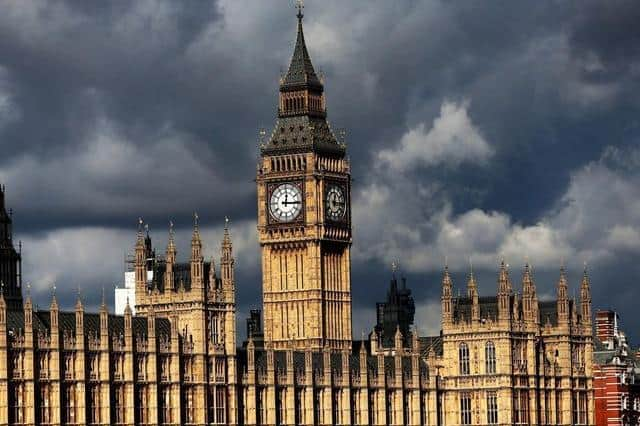Why we should jail the bank bosses who fail to stop money laundering - Greg Wright
Anyone flicking through the latest economic crime manifesto - prepared by two major cross party Parliamentary groups - will find chilling evidence of the illicit wealth which is damaging Britain’s reputation as a trusted jurisdiction and seeping into our democratic and public institutions.
I’ve long argued that bank bosses should face jail if they fail to prevent money laundering. My concerns are broadly echoed by the members of parliamentary groups on anti-corruption and fair business banking, who have warned that Britain’s defences against dirty money have been overrun. Now is the time for wide-ranging reform.


Advertisement
Hide AdAdvertisement
Hide AdAs well as making senior executives criminally liable for failing to prevent economic crime, the group called on the Government to treble the amount of money it spent on enforcement over the next three years to £300 million and provide more protection for courageous whistleblowers, who are often marginalised and bullied for doing the right thing.
Labour’s Dame Margaret Hodge said: “London is now the laundromat for washing dirty money and we can’t go on like this.”
Although the Government promised to bring in a second Economic Crime Bill in the Queen’s Speech, Dame Margaret said many MPs feared it would not go far enough and she would press the Government to take tougher measures.
Conservative MP Kevin Hollinrake said making executives criminally liable would “be the sea change we need”.
Advertisement
Hide AdAdvertisement
Hide AdHe compared it to changes that made construction company executives liable for failing to prevent accidents at work.
Mr Hollinrake said: “Suddenly, when that happened, the deaths and serious injuries dropped like a stone, because that focuses the attention, it’s not just a cost of doing business.”
The Government has already committed to spending £100 million over the next three years on economic crime enforcement, with another £300 million coming from the private sector through the economic crime levy, but MPs want to see that commitment increased to match those private funds.
Campaign group Transparency International UK welcomed the proposals, with director of policy Duncan Hames saying: “This manifesto is a compelling call for Government to act here in Britain on the scourge of economic crime and corruption.”
Advertisement
Hide AdAdvertisement
Hide AdAs Mr Hames acknowledged, the MPs are right to demand an end to secrecy in Britain’s offshore financial sectors, an overhaul of the private sector’s dirty money defences, and a significant increase in funding for law enforcement to catch the money launderers.
But both Dame Margaret and Mr Hollinrake acknowledged there were “vested interests” who would lobby against their proposals.
Mr Hollinrake said: “If you’re a chief executive of a big bank, are you going to like the prospect of having your collar felt if things go wrong in your bank? You’re not, so you then go to the Treasury..and say don’t do that.”
Professionals who breach the Money Laundering Regulations are rarely fined for their wrongdoing, according to the MPs. The Office for Professional Body Anti-Money Laundering Supervision must ensure there is a credible deterrent. This means the professional bodies overseeing lawyers or accountants should be ordered to issue bigger fines for wrongdoing.
Advertisement
Hide AdAdvertisement
Hide AdThe Government must order tax advisers to be formally registered as members of a professional body. Currently, a professional could be struck off as a member of a regulated trade body for tax fraud yet continue their activity. This is totally unacceptable.
The Government retains considerable political muscle due to its large majority, despite the outrage over “partygate”. It must wield this power wisely for the greater good and ignore special pleading from powerful interests who might seek to weaken proposals which could send the money launderers packing.
